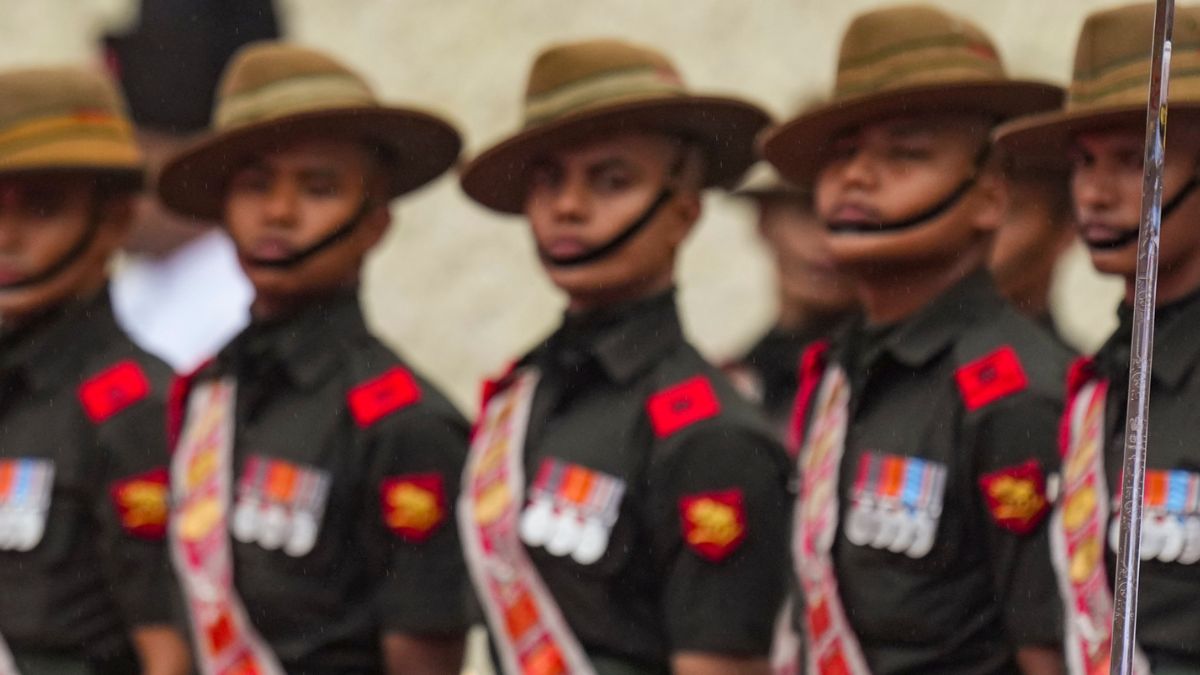Supreme Court pushes for comprehensive policy on cadets disabled during training
 From the Guard of Honour during the 79th Independence Day celebrations | PTI File Photo
From the Guard of Honour during the 79th Independence Day celebrations | PTI File Photo
The Supreme Court on Wednesday took a firm step towards ensuring greater institutional support for cadets disabled during military training, directing the Centre to revisit its compensation framework and evolve a separate resettlement policy for such cadets.
The matter, taken up suo motu, has already yielded tangible results with the government agreeing to extend full medical coverage under the Ex-Servicemen Contributory Health Scheme (ECHS) to all invalidated and outboarded cadets.
The government’s stand
Appearing for the Centre, Additional Solicitor General (ASG) Aishwarya Bhati informed the Court that currently, families of cadets who die during training are provided a one-time ex gratia payment of Rs 12.5 lakh, along with a monthly pension of Rs 9,000 to the next of kin. In cases of disablement, a proportionate ex gratia amount is sanctioned depending on the percentage of disability.
ASG further explained that cadets are covered under the Army Group Insurance Fund, a subscription-based scheme that has existed since 1992 for Army, Navy, and Air Force personnel. Cadets contribute premiums and thereby qualify for certain insurance benefits. Bhati also noted that there exists a constant attendance allowance and limited support through resettlement channels.
The Court’s response
Justice B.V. Nagarathna, who has been vocal on this issue, observed that cadets form a distinct category of service aspirants, educated young individuals who take the risk of enrolling for rigorous military training with the hope of serving the nation. She stressed that the government must not treat them as neither here nor there, but instead create a separate category with defined rights and entitlements.
The Bench also noted that the existing ex gratia payments, last revised in 2017, are inadequate in today’s context of inflation and rising costs of medical care. The Court suggested that these figures be enhanced substantially, especially for those rendered permanently disabled and unable to secure alternative employment.
The Court expressed concern over the inadequacy of the insurance scheme, remarking that in situations of severe disability, reliance on insurance alone cannot sustain the affected cadets and their families. It requested the Centre to consider enhancements both in financial support and long-term rehabilitation measures.
Further, the Court directed the Centre to explore periodic medical reassessment of such cadets to evaluate their fitness for resettlement opportunities in other wings of government service.
To assist in charting out a comprehensive policy, the Court appointed senior advocate Rekha Palli as amicus curiae and listed the matter for further hearing on October 7.
The Supreme Court’s intervention highlights a long-ignored gap in India’s military welfare architecture. Unlike soldiers who die or are injured in combat, cadets injured during training fall into a grey zone, neither recognised as service personnel nor entitled to the benefits available to veterans. This anomaly has left many disabled cadets struggling for medical care, financial support, and dignified resettlement.
By extending ECHS facilities to cadets, the government has already acknowledged the legitimacy of their claim. Yet, this is only a starting point. The absence of a dedicated resettlement policy means that many trained young men and women, invalidated due to injuries sustained in the service of the uniform, are left without meaningful employment prospects.
The matter, now slated for October, will test the government’s willingness to move beyond insurance-based stopgaps and evolve a comprehensive, rights-based scheme for cadets.
The suo motu case, titled In Re: Cadets Disabled During Military Training Struggle, was triggered by a newspaper report flagging the issue of these cadets, who were once part of training at the nation’s top military institutes, such as the National Defence Academy (NDA) and Indian Military Academy (IMA).
According to the report, since 1985, nearly 500 officer cadets have been medically discharged from military academies after suffering varying degrees of disability during training. Many now face mounting medical expenses, surviving on an ex gratia allowance of just Rs 40,000 per month, an amount far short of their actual needs.
At the National Defence Academy (NDA) alone, around 20 cadets were discharged on medical grounds between 2021 and July 2025.
Defence